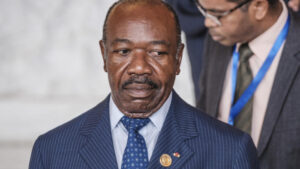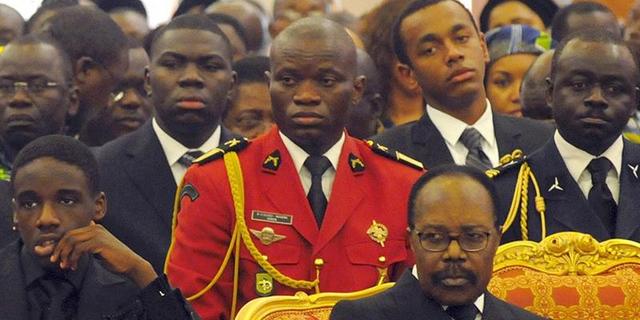Gabon, a central African country known for its oil-rich resources, has been thrown into turmoil following a disputed presidential election, culminating in a military coup that has taken the nation by surprise. The election, which took place on Saturday, has led to widespread allegations of fraud and an abrupt power shift that has left the nation reeling.
In a shocking turn of events, a group of military officers declared on Wednesday that they were taking control of the country, dissolving key institutions and canceling the election results. The electoral commission had initially declared the incumbent President Ali Bongo the winner with just under two-thirds of the votes, a result that was challenged by the opposition.

The coup leaders, in a televised statement, cited reasons including “irresponsible, unpredictable governance resulting in a continuing deterioration in social cohesion that risks leading the country into chaos.” The country’s borders were swiftly closed, and the military took charge of crucial installations in the capital and economic hub.
President Ali Bongo, who succeeded his father Omar Bongo in 2009, found himself under house arrest along with the arrest of one of his sons on charges of treason. The military identified themselves as the Committee for the Transition and Restoration of Institutions (CTRI), claiming to act on behalf of the Gabonese people and aiming to restore peace by overthrowing the current regime.
The coup leaders appointed General Brice Oligui Nguema, the head of the Republican Guard, as the transitional president. This move was met with both celebration and criticism. Images of Nguema being carried triumphantly by soldiers circulated on television, while the African Union (AU) and Nigeria expressed concern over the rise of military interventions in the continent’s politics.
Gabon has a history of being ruled by the Bongo family for the majority of its post-independence years. Omar Bongo’s nearly four decades in power were followed by his son Ali’s presidency, leading to long-standing concerns over the consolidation of power within the same family.
The opposition, led by university professor Albert Ondo Ossa, had vehemently accused Ali Bongo of fraud and demanded his peaceful resignation. The country had witnessed heightened tensions, with a curfew imposed and internet services temporarily shut down following the election.
In a secret video that emerged from his confinement, Ali Bongo appealed to the international community to raise awareness about his situation, expressing worry for his family members who were reportedly held in separate locations.
As the situation in Gabon continues to unfold, the world watches with bated breath to see how regional and global players respond to this sudden upheaval. The events in Gabon raise crucial questions about the fragility of democratic processes in some African nations and the potential for further unrest in the region.

Leave a Reply
You must be logged in to post a comment.